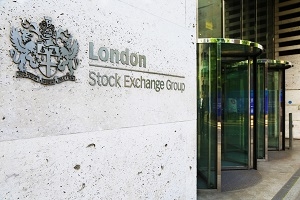In a startling development in a curious saga, the London Stock Exchange Group (“LSEG”) has released the circular for a general meeting to put to a shareholder vote a resolution to remove its chair, Donald Brydon, even though Mr. Brydon has already announced his intention to step down in 2019.
LSEG’s corporate governance has dominated headlines in recent days, especially after it announced on November 29, 2017, that its CEO, Xavier Rolet, would be resigning with immediate effect; and the chair of the board, Donald Brydon, would not be seeking re-election to the board at the 2019 AGM.
 The twists and turns of this corporate governance drama trace back to merger negotiations between LSEG and Deutsche Börse in 2016. As part of the proposed merger, Xavier Rolet was due to step down to make way for another CEO to lead the post-merger exchange. In March, 2017, the merger was blocked by the EU for competition reasons; however, on October 19, 2017, the company announced that Mr. Rolet would be resigning anyway.
The twists and turns of this corporate governance drama trace back to merger negotiations between LSEG and Deutsche Börse in 2016. As part of the proposed merger, Xavier Rolet was due to step down to make way for another CEO to lead the post-merger exchange. In March, 2017, the merger was blocked by the EU for competition reasons; however, on October 19, 2017, the company announced that Mr. Rolet would be resigning anyway.
Trouble stirred in early November, when a letter to the chair written by an activist investor, The Children’s Investment Fund (“TCI”), led by Sir Christopher Hohn, was circulated among shareholders. The letter contained allegations that Xavier Rolet had been forced to resign by the LSEG chair, Donald Brydon. On November 9, 2017, TCI sent a requisition for a general meeting that contained two proposals: for Mr. Brydon to be removed from the board, and for Mr Rolet to be permitted to remain in office until 2021.
The pace of events quickened from there. News that a dedicated committee of the board were putting together a dossier of Mr. Rolet’s behaviour was quickly followed by a rebuke from TCI, warning the board to not engage in a “character assassination”; and calling on the Bank of England to wade into the fray by removing Mr. Brydon and appointing a new chair. When asked for his opinion, the Bank of England governor, Mark Carney, praised Mr. Rolet but acknowledged the unusual nature of the situation, and noted that “everything comes to an end”. The next day, the LSEG announced not only the resignation of Mr. Rolet with immediate effect, but the departure of Mr. Brydon after the annual general meeting in 2019, “as he and the Board believe that at that point it would be in shareholders’ interests to have a new team at the helm to steer the future progress of the Company”. The LSEG board also stated that if TCI did not withdraw its requisition, it intended to publish a circular and notice of a general meeting no later than November 30, 2017. TCI responded by insisting that the meeting be held regardless, and that the proposal to oust Mr. Brydon be put to a shareholder vote. Shortly before 17:00 on November 30, 2017, LSEG announced that a circular containing a notice of general meeting is being mailed to shareholders, and the meeting will be held on December 19, 2017.
No doubt LSEG’s corporate governance conundrum will be debated from many angles in the coming weeks leading up to the meeting. It presents an interesting tangle of many tensions inherent to corporate governance: the role of activist shareholders; the desire for transparency as to process, but discretion as to private deliberations; and, perhaps most fundamentally, the relationship between the CEO and the chair. Is the sudden change in leadership an example of good corporate governance, a board actively responding to the criticisms of shareholders? Or is it an example of the board definitively sweeping an embarrassing situation under the carpet, leaving shareholders none the wiser as to what actually occurred? The truth probably depends on what side of the board table you are sitting at, but there’s no doubt that the general meeting will be one to watch.
Cian is an analyst covering the UK market.
